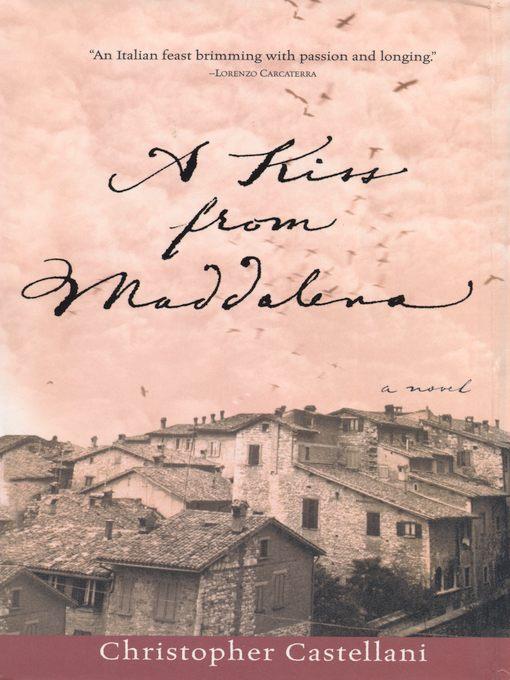
A Kiss from Maddalena
فرمت کتاب
ebook
تاریخ انتشار
2003
نویسنده
Christopher Castellaniناشر
Algonquin Booksشابک
9781565126954
کتاب های مرتبط
- اطلاعات
- نقد و بررسی
- دیدگاه کاربران
نقد و بررسی

February 10, 2003
Stendhal, in his book On Love, claimed that Italy was the home of passionate love because Italians take reverie as seriously as politics. Castellani, a young American writer, takes the Stendhalian viewpoint in this charming first novel. Vito Leone is a 17-year-old in the Italian village of Santa Cecilia in 1943, one of the few males who have not gone off to war. Vito is only intermittently aware of the fighting, since his attention is absorbed by the village beauty, Maddalena Picinelli. Vito is the village clown, living alone with his mother, Concetta, who suffers from a chronic mental disorder. Despite these circumstances, Maddalena reciprocates Vito's love. On the night that the Germans come through Santa Cecilia, blowing up buildings, Maddalena nearly decides to give herself to Vito, but to scare Maddalena into chastity, Carolina, Maddalena's shrewd sister, tells her of a young village woman who recently died in childbirth. The Picinellis flee to the countryside for the duration of the war, while Vito, in the mostly deserted village, cares for his mother. After the Germans nearly destroy the Picinelli house, Vito rebuilds it. When the Picinellis return to Santa Cecilia, they are surprised to find their house preserved, but they want to bestow Maddalena upon a prosperous Italian-American, Antonio Grasso. Will she sacrifice Vito for her family? Vito, Maddalena and Carolina are strong characters, and Castellani creates a velvety, cinematic atmosphere—a touch clichéd, but rich and effective nonetheless. Like a Verdi opera, Castellani's story creates a certain grandeur out of its own lightness.

March 1, 2003
In 1945 Italy, in a remote mountain village of semiliterate peasants, Vito nurtures an initially unrequited affection for beautiful Maddalena, daughter of the village's leading family. The young women think only of God and kisses, not always in that order, while most of the young men are away fighting a war they do not understand. Even the privileged men who listen to the radio have only a faint understanding of world events and do not know whether they are for or against Mussolini and whether the Germans or the Allies will kill or protect them. The central question, though, is whether Vito is "good enough" for Maddalena, defined as having money and aspirations. Unfortunately, the writing in this not entirely auspicious debut could have used editorial help, as when Vito is deemed "friendless" and "without friends" in the same sentence. The action verbs used to describe heartbreaking situations often make them cartoonlike, and the characters sometimes sound like contemporary Brooklynites. This may be an accurate depiction of Italian villagers of the period, but it is not a flattering one. For comprehensive collections of World War II fiction.-Judith Kicinski, Sarah Lawrence Coll. Lib., Bronxville, NY
Copyright 2003 Library Journal, LLC Used with permission.

February 15, 2003
This sweet but flawed debut novel employs one of literature's favorite topics--young love flowering in the shadow of war. It is 1943 and Vito Leone, two months short of draft age, is one of only three young men left in the Italian village of Santa Cecilia. He spends his days caring for his invalid mother and trying to woo the lovely, and initially aloof, Maddalena Picinelli. Bony, baby faced, and considered a bit of a loser by most of the villagers, he nevertheless manages to win the girl surprisingly fast. She sees right through Vito's skinny chest to his romantic, nurturing heart. Readers may find it harder to fall for him. Along with an appealing tenderness, Vito displays a grating fondness for self-pity and has more than a little trouble asserting himself. It doesn't help that when he makes a grand gesture to prove his worthiness, the book all but skips over it. Maddalena is often ineffectual, too, making it not easy for readers to care much whether, in this case, love conquers anything.(Reprinted with permission of Booklist, copyright 2003, American Library Association.)

























دیدگاه کاربران